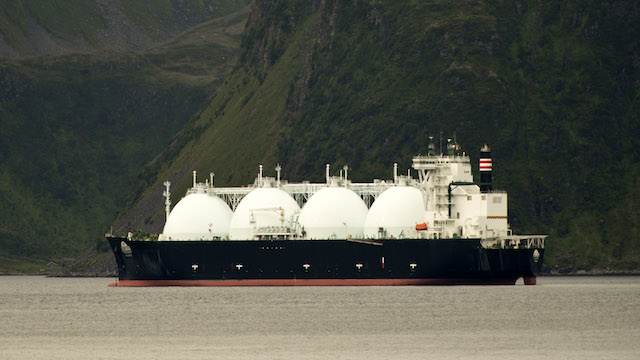Shares of Ophir Energy (LSE: OPHR) have jumped 15% in early trading after the company announced it has partnered with global energy giants Golar Energy and Schlumberger to develop the large Fortuna liquefied natural gas (LNG) field off the coast of Equatorial Guinea.
It’s good to have friends in high places
Shares have rocketed on this news for several reasons. For one, partnering with the likes of Golar and Schlumberger brings considerable advantages. Schlumberger, one of the world’s largest oil field services providers, brings decades of experience in developing oil and gas assets. Golar brings to the table the knowledge and ability necessary to liquefy, store and transport the LNG.
Furthermore, partnering with these two substantially lessens the financial risks to Ophir and its shareholders. The company estimates that from the final investment decision in H1 2017 to first gas in 2020 the project will require $2bn, of which $1.2bn will be debt financed. The agreement also stipulates that Ophir’s committed expenditure to first gas won’t exceed $150m. This means Ophir, which had over $200m of net cash on its balance sheet at the end of June, will most likely avoid tapping shareholders for additional funding.
In exchange for diversifying its downside Ophir did have to sacrifice some of the upside potential of Fortuna in the form of taking only a 33% stake in the joint venture. However, if this is necessary to reach first gas without dangerously over-leveraging the balance sheet then I would view it as a positive for current shareholders.
Show me the money
Of course, it’s also necessary to touch on the economics of the Fortuna project and LNG in general. In the short term the same factors that have dragged down oil prices have also led to LNG prices falling dramatically. European Union spot LNG prices are down from around $11/mmbtu pre-2014 to $4.29/mmbtu currently.
The good news is that falling oil and gas prices have also significantly decreased the cost of construction and servicing of new developments. Ophir now believes that offtake agreements at $6/mmbtu will net the joint venture some $560m in cash flow per annum. This would mean a little under $200m per year would find its way to Ophir before debt servicing.
Ophir’s conservative approach to funding leads me to believe that the company will attempt to sign enough offtake agreements to break even and cover debt financing. Whatever production is left over can be sold at spot prices, allowing Ophir to benefit from any upwards movement in LNG prices.
Indeed, in my opinion LNG prices are likely to move upward in the coming decades. This is primarily due to increasing global consumption of cleaner burning fossil fuels such as natural gas.
Today’s update represents a major step forward for Ophir. Bringing on board top notch partners, limiting the downside risks of Fortuna and clarifying the financial outlook of the project should all be cheered by investors. It’s still a long way to go before first gas but investors looking for a conservative approach to benefitting from the long-term potential of LNG would do well to take a closer look at Ophir.








